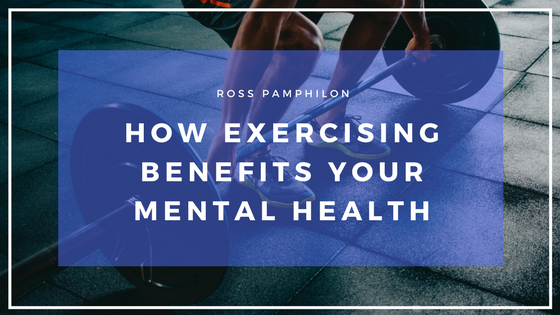The physical benefits of exercise are widely touted. One need look no further than news sites to learn about recent research studies promoting the body-improving qualities of working out. It is generally understood that regular physical exercise can help with weight loss, cardiovascular health, strengthening bones, building stamina and reducing the risk of developing a number of health conditions. Less widely publicized is the fact that in addition to benefiting the body, exercise plays an important role in mental health. Here’s a look at how:
The Endorphin Release
Ever hear of the “runner’s high”? That’s really endorphins at work. Endorphins are hormones secreted from the pituitary gland that help relieve pain and stimulate feelings of euphoria. The body releases them during times of emotional stress, pain, orgasm, and – take note—strenuous exercise. Endorphins are so effective at boosting one’s mood that doctors often advise patients who suffer from clinical depression or anxiety to undertake physical activity. The mood-enhancing outcomes of this naturally-occurring phenomenon can as effective as anti-depressant pills.
Stress Relief
Even if a person doesn’t suffer from depression or anxiety, he or she likely has the normal life stresses. Who doesn’t? One of the most common benefits of exercise is the link between physical activity and stress relief. In addition to relieving existing stress, exercising regularly can help with moderating the brain’s response to stress. Who wouldn’t want that?
Boost Self-Confidence
Exercise is a simple way to raise a person’s perception of his or her ability. Regardless of whether or not a person sees notable physical changes as a result of their exercise, the rise in self-confidence occurs. People who exercise generally have higher self-esteem than their more sedentary peers.
Stave Off Cognitive Decline
It’s not pleasant to think about, but after age 45 the brain begins its long downward descent. In addition to the dying off of brain cells, the brain actually shrinks, taking with it many important functions. Physical activity, especially if undertaken between the ages of 25 and 45, helps boost chemicals that have been shown to slow down the degeneration of the part of the brain responsible for memory and learning.
There are so many reasons why exercise is important for both physical and mental health. There doesn’t seem a good reason not to get out there and find a way to incorporate it into a daily routine.

